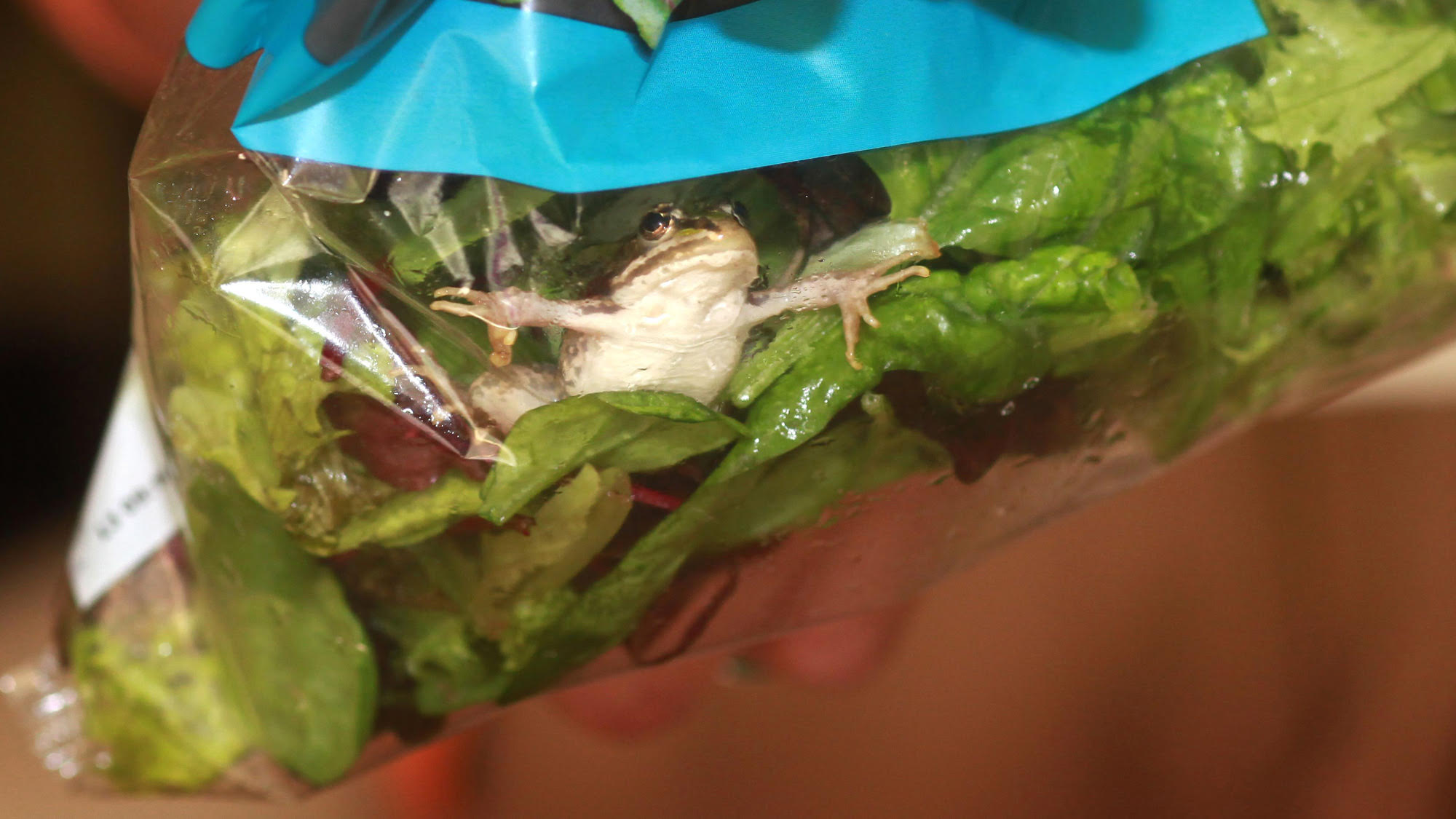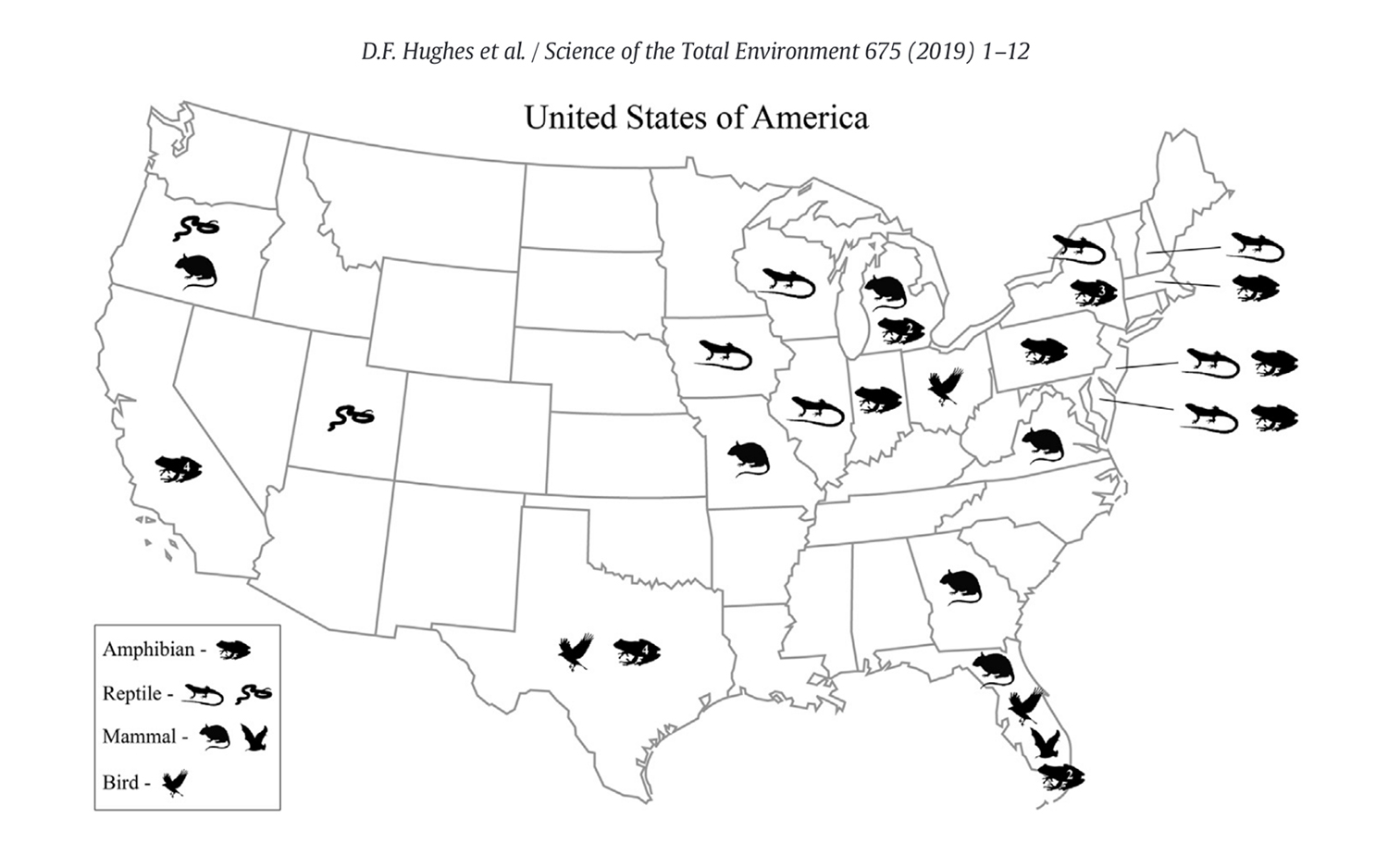Frogs, Toads, Lizards and Bats ... Were Found in Bagged Salads

In recent years, dozens of people in the United States who bought prepackaged salads at their local grocery stores found unexpected extra ingredients mixed in with their kale and romaine: frogs, lizards, rodents and even a bat.
In 10 instances, the animals were still alive. (Perhaps, that made the encounters less gruesome … or infinitely worse.)
Researchers recently reviewed reports of these animal discoveries dating back to 2003, describing their findings in a new study. They presented 40 examples of bagged salads purchases in 20 states that included unwelcome wildlife stowaways; 38 of these encounters took place during the past decade. [9 Disgusting Things That the FDA Allows in Your Food]
The scientists collected data on incidents that had been covered by news outlets online, noting details such as the date and location of the animal discoveries; the type of produce; whether the produce was boxed or bagged; and the animal species — and if it was dead or alive. For the dead animals, the scientists recorded "whether the animal was whole or partial," they wrote in the study, published online July 20 in the journal Science of the Total Environment.

Of the animals found in salad, about 53% were frogs and toads, and most of the frogs were in the treefrog group. Around 23% of the salad animals were reptiles, while nearly 18% were mammals and the rest were birds, the scientists reported. Most of the mammals were rodents, but the one instance of a bat in salad — a Brazilian free-tailed bat (Tadarida brasiliensis) found in Florida in 2017 — received significantly more media attention than other animals, likely because bats are known vectors for many diseases that affect people, the researchers explained.
They also noted that animal appearances were three times more common in bags of conventional vegetables than in organic greens.
And though this study focused on animals with backbones, the researchers found "numerous instances" of invertebrate life in packaged salads.
Sign up for the Live Science daily newsletter now
Get the world’s most fascinating discoveries delivered straight to your inbox.
"Pending a thorough review, these may in fact outnumber the vertebrate cases," they wrote. It's also possible that wildlife ends up in packaged salad even more frequently than their findings suggest, as some incidents may have gone unreported or were covered only in print media, which was not included in this study, the scientists added.
Prepackaged salads have surged in popularity since their introduction in the 1980s, and the industry's rapid growth and increasing reliance on automated production pipelines could explain how small, wild animals could bypass safety features and end up sealed inside a salad bag, the study authors reported.
This is the first study to address these recurring instances of small vertebrate wildlife in salad, and "it remains unclear whether these occurrences indicate a food-safety crisis or a complaint against food quality," according to the study. Further observations of the harvesting and production process will be necessary in order to pinpoint when and how the animals find their way into salad bags, and what steps might be taken to keep them out, the authors concluded.
- 15 'Disgusting' Foods Will Have Your Taste Buds Begging for Mercy
- Nature's Most Bizarre Frogs, Lizards and Salamanders
- 40 Freaky Frog Photos
Originally published on Live Science.

Mindy Weisberger is an editor at Scholastic and a former Live Science channel editor and senior writer. She has reported on general science, covering climate change, paleontology, biology and space. Mindy studied film at Columbia University; prior to Live Science she produced, wrote and directed media for the American Museum of Natural History in New York City. Her videos about dinosaurs, astrophysics, biodiversity and evolution appear in museums and science centers worldwide, earning awards such as the CINE Golden Eagle and the Communicator Award of Excellence. Her writing has also appeared in Scientific American, The Washington Post and How It Works Magazine. Her book "Rise of the Zombie Bugs: The Surprising Science of Parasitic Mind Control" will be published in spring 2025 by Johns Hopkins University Press.










